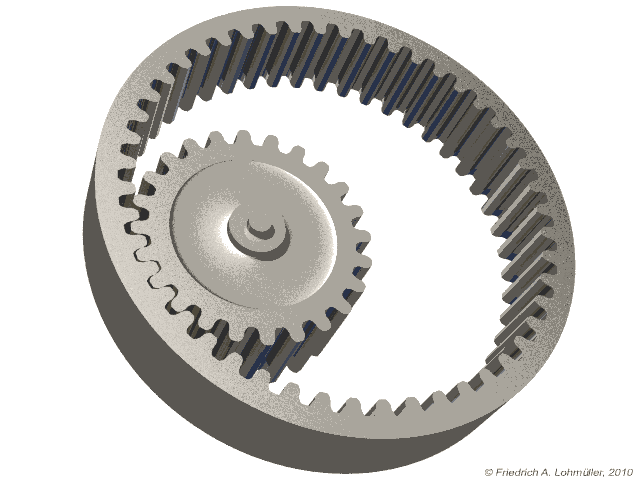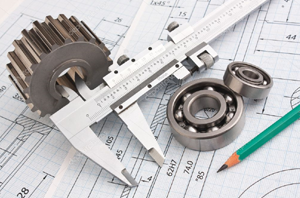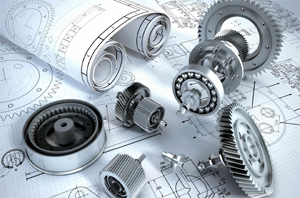Department of Mechanical Engineering Peshawar Campus
The field of Mechanical Engineering helps design, manufacture and maintain mechanical systems that cater to the needs of human society by the application of principles of engineering and allied sciences. The breadth of Mechanical Engineering ranges from the design and manufacturing of simple devices like injection catheters, switches and sensors to the high tech machines such as intelligent cars, power plants, satellites; the list is inexhaustible and the horizons limitless. The core of Mechanical Engineering encompasses the generation, conversion and utilisation of mechanical and thermal energy, design of components and systems, and application of economically viable manufacturing and quality control processes. Mechanical Engineering is a diverse field that ingrains the cross cutting innovations in all fields of engineering and sciences. The Mechanical Engineering education therefore prepares a versatile engineer who is ready to take up the challenges of the ever changing world of technology.
Faculty & Staff of Mechanical Engineering Peshawar Campus- Mission of the Department of Mechanical Engineering: The Department of Mechanical Engineering has laid the following mission:
"To develop graduates with relevant skills through transfer of broad, and in-depth knowledge, enabling them to contribute towards solution of complex industrial problems for sustainable development"
- Program Educational Objectives (PEOs) of B.Sc. Mechanical Engineering The objectives of Mechanical Engineering B.Sc. program are to produce graduates who are able to:
- PEO-1: . Adopt challenging careers in the field of Mechanical Engineering with their professional competence for solution to engineering problems.
- PEO-2: . Pursue advanced education, research, and development for achieving innovation in engineering and technology.
- PEO-3: . Assume leadership position within an organization, in compliance with ethical, societal, economic, and environmental practices, for sustainable development.
- Department Program Learning Outcomes are:
- 1. Engineering Knowledge An ability to apply knowledge of mathematics, science, engineering fundamentals and an engineering specialization to the solution of complex engineering problems.
- 2. Problem Analysis An ability to identify, formulate, research literature, and analyze complex engineering problems reaching substantiated conclusions using first principles of mathematics, natural sciences and engineering sciences.
- 3. Design/Development of Solutions An ability to design solutions for complex engineering problems and design systems, components or processes that meet specified needs with appropriate consideration for public health and safety, cultural, societal, and environmental considerations.
- 4. Investigation An ability to investigate complex engineering problems in a methodical way including literature survey, design and conduct of experiments, analysis and interpretation of experimental data, and synthesis of information to derive valid conclusions.
- 5. Modern Tool Usage An ability to create, select and apply appropriate techniques, resources, and modern engineering and IT tools, including prediction and modeling, to complex engineering activities, with an understanding of the limitations.
- 6. The Engineer and Society An ability to apply reasoning informed by contextual knowledge to assess societal, health, safety, legal and cultural issues and the consequent responsibilities relevant to professional engineering practice and solution to complex engineering problems.
- 7. Environment & Sustainability An ability to understand the impact of professional engineering solutions in societal and environmental contexts and demonstrate knowledge of and need for sustainable development.
- 8. Ethics Apply ethical principles and commit to professional ethics and responsibilities and norms of engineering practice.
- 9. Individual and Team Work An ability to work effectively, as an individual or in a team, on multifaceted and /or multidisciplinary settings.
- 10. Communication An ability to communicate effectively, orally as well as in writing, on complex engineering activities with the engineering community and with society at large, such as being able to comprehend and write effective reports and design documentation, make effective presentations, and give and receive clear instructions.
- 11. Project Management An ability to demonstrate management skills and apply engineering principles to one's own work, as a member and/or leader in a team, to manage projects in a multidisciplinary environment.
- 12. Lifelong Learning An ability to recognize the need for, and have the preparation and ability to engage in, independent and life-long learning in the broadest context of technological change.
- Academic Programs
- - B.Sc. Mechanical Engineering
- - M.Sc. Mechanical Engineering
- - Ph.D. Mechanical Engineering
Syllabus of Mechanical Engineering
Industrial Visits
Industrial visits are regularly conducted every year to broaden the horizon of students and to appraise them with the industry of Pakistan.
- Laboratories Practical work in laboratories is an essential part of the curriculum. Almost all subjects taught are augmented by practicals in the laboratories. The Department is supported by well-equipped laboratories having state-of-the-art machinery and equipment. It has the following laboratories:
- - Fluid Mechanics Laboratory
- - Heat Transfer and HVAC Laboratory
- - Thermodynamics Laboratory
- - Mechanics of Materials Laboratory
- - Mechatronics Laboratory
- - Advanced Manufacturing Laboratory
- - Mechanics of Machines and Vibration Laboratory
- - Measurement, Instrumentation and Control Laboratory
- - Metallurgy Laboratory
- - Power Plants Laboratory
- - Engineering Workshops
- - Advanced Material Research Laboratory
- - SNGPL Laboratory
- - CAD Laboratories
Computing Facilities
The Department has two well-equipped computer laboratories with networked PCs.
Latest CAD and simulation softwares prepare the students to be well versed with
current computer applications.
PEC Accreditation Status
All batches are accredited by Pakistan Engineering Council (PEC). The Program is accredited under Level-II (OBE Based Assessment) for batches 2017, 2018, and 2019.
Research
Faculty is actively involved in research in the areas of Vibration, Design, Stress
Analysis, Materials Engineering, Impact Analysis and Mechanisms Design.



